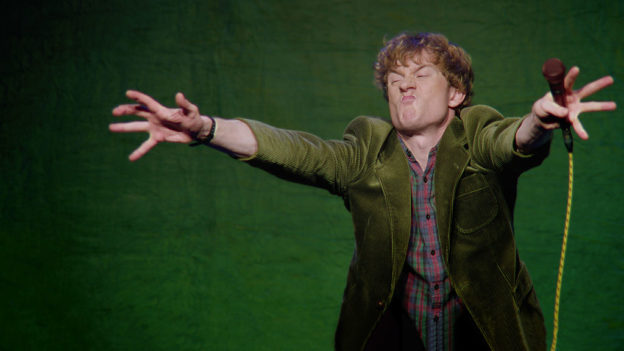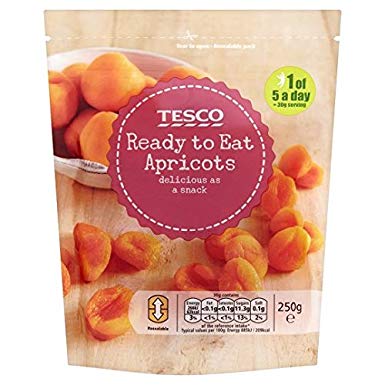Learn English from some jokes in this episode as we go through 9 jokes chosen as the best of the Edinburgh Festival Fringe stand up comedy scene this year (2021). Let me tell you the jokes, see if you understand them, and then I will break them down for language learning opportunities. Video version available.
Audio Version
Video Version
Episode Transcript / Notes
Top Jokes from Edinburgh Fringe 2021, Explained
Hello listeners, hello video viewers. How are you? How is the world treating you today? Not too badly I hope.
Here’s a new episode. So stick with me. Listen closely. Pay attention. You can definitely learn some new English from this. Let’s get started.
Introduction
It’s time to dissect the frog again as we look at some of the most popular jokes from the Edinburgh Festival Fringe of this year 2021. I’m going to read them to you and then explain them so you can understand them fully and also learn some new vocabulary in the process.
This is something I’ve been doing every year at the end of the Ediburgh Festival when the list of the most popular jokes is published in the newspapers.
Last year I didn’t do one of these episodes because Ed Fringe got cancelled due to Covid-19.
But the festival was back this year, so here we go again. Let’s find some popular jokes told by comedians at the fringe and use them to learn English.
Edinburgh Festival Fringe
Just in case you don’t know, the Edinburgh Fringe (full name: The Edinburgh Festival Fringe) is a huge comedy festival that happens every August in Edinburgh, the capital city of Scotland.
Sometimes it’s called The Edinburgh Festival Fringe, Edinburgh Fringe, The Edinburgh Comedy Festival, Ed Fringe, just The Fringe or simply Edinburgh.
It’s one of the biggest comedy festivals in the world, and every August comedians travel to the city in order to perform comedy to the large crowds of people who travel there.
For comedians August in Edinburgh is a huge opportunity to get exposure and experience, but it is very tough, especially at the beginning when you have to drum up an audience of people to come to your shows every day.
Just in case you didn’t know, stand-up is a form of entertainment that involves one comedian standing on stage with a microphone telling stories and jokes in an effort to make the audience laugh. It is an extremely popular form of entertainment in the English speaking world.
This episode is about specific jokes told by comedians during the fringe this year, but stand-up comedians don’t really just go up and tell individual jokes one after the other (except in the case of some specific comedians), rather they fit their jokes into stories, observations about the world or confessions about themselves.
However, this list of the “best jokes from the fringe” just picks simple one or two line jokes from people’s performances.
Lower Your Expectations Now 😅
I expect that taking these jokes away from their original performances will not help the jokes.
They will probably be less funny outside the comedy show that they came from because we’re going to remove the context of the joke, the attitude and personality of the comedian who told the joke and what was happening in the room that particular evening. All those elements have a huge impact on how funny the joke will be.
So, it’s not very fair to judge these jokes on their own like this, outside of their original context, but this is still an interesting experiment in learning English, so here we go.
Here’s how we’re going to do this
- First I will read each joke one by one.
- There are 9 jokes in total.
- How many jokes do you “get”?
- If you “get” a joke, it means you understand why it is funny.
- Ideally you will laugh, but you can also groan.
- If you don’t understand it you need to say “I don’t get it!”
- The main thing is: You have to notice and acknowledge that a joke has been told to you.
So, listen to the jokes, do you get them all?
- Then I will go through each joke one by one and I will break them all down, explaining exactly how they work, showing you double meanings, explaining any specific vocabulary or cultural reference points and giving you all the information you need to be able to understand these jokes properly.
There is a lot of vocabulary to be learned from this, which I will highlight as we go through and recap at the end.
So, get ready, it’s time to dissect the frog again.
Of course, I have to say the quote:
Explaining a joke is like dissecting a frog. You can learn something from it, but the frog dies in the process.
I expect I will be killing all these jokes by explaining them.
You’re not meant to explain jokes, and if you do, the joke suddenly becomes less funny.
Most jokes work by surprise.
Getting the double meaning instantly is usually the only way to find a joke funny.
So I can’t guarantee that you will laugh at these jokes, but this is certainly going to be good for your English in any case.
Joke types
A lot of these jokes use
- synonyms (different words with a similar meaning),
- common fixed expressions and sayings
- homophones (different words that sound the same)
- similies (finding similarities between otherwise different things),
- pull back & reveal (revealing extra information to change the situation)
Top Jokes from Edinburgh Fringe 2021
I’m getting this list from the website Chortle.co.uk which is the UK’s number 1 comedy website.
https://www.chortle.co.uk/news/2021/08/22/49087/masai_graham_wins_the_dave%2A_joke_of_the_fringe
1. “I thought the word ‘Caesarean’ began with the letter ‘S’ but when I looked in the dictionary, it was in the ‘C’ section.”
– Masai Graham
2. “My therapist told me, ‘A problem shared, is a hundred quid’.”
– Ivor Dembina
3. “Me and my ex were into role play. I’d pretend to be James Bond and she’d pretend she still loved me.”
-Tom Mayhew
4. “The roman emperor’s wife hates playing hide and seek because wherever she goes Julius Caesar.”
– Adele Cliff
5. “Marvin Gaye used to keep a sheep in my vineyard. He’d herd it through the grapevine.”
– Leo Kearse
6 “My grandparents were married for forty years, but everything took longer back then.”
– Will Mars
7. “I think Chewbacca is French because he understands English but refuses to speak it.”
– Sameer Katz
8. “I don’t know what you call a small spillage from a pen but I have an inkling.”
– Rich Pulsford
9. “People say zoos are inhumane. But that’s because they’re for animals.”
– Sameer Katz
Vocabulary Focus
Now let’s go through those jokes again and break them down so you can understand them fully, picking up bits of vocabulary along the way.
Broken down versions (sorry frogs)
1. “I thought the word ‘Caesarean’ began with the letter ‘S’ but when I looked in the dictionary, it was in the ‘C’ section.”
– Masai Graham
Vocabulary
A caesarean
A C-section
2. “My therapist told me, ‘A problem shared, is a hundred quid’.” – Ivor Dembina
Vocabulary
Common phrase: “A problem shared is a problem halved.”
Quid
Halved (verb)
3. “Me and my ex were into role play. I’d pretend to be James Bond and she’d pretend she still loved me.” – Tom Mayhew
Vocabulary
To be into role play
Role play – pretending to be someone else, often during sex to make it more interesting.
To pretend to be someone / to do something
He pretended he was James Bond
She pretended she still loved him.
4. “The Roman emperor’s wife hates playing hide and seek because wherever she goes Julius Caesar.” – Adele Cliff
This is a pun – a word joke and it’s just that one thing sounds like something else.
“Julius Caesar” sounds like Julius sees her, which is why his wife hates playing hide and seek because Julius always sees her. Julius Caesar. I think you get it.
Vocabulary
To play hide and seek
5. “Marvin Gaye used to keep a sheep in my vineyard. He’d herd it through the grapevine.” – Leo Kearse
Oooh, this is a bit of a groaner. That’s where you go Oooooh like it almost hurts.
“Heard it through the grapevine” is one of Marvin Gaye’s most famous songs.
“Herd” can mean to move a group of animals in a certain direction, like sheep or cows. You herd your sheep into a field.
Marvin used to keep a sheep in my vineyard. A vineyard is a place where you grow grapes for wine.
The grapevine is where the grapes grow, but there’s also an idiom “through the grapevine” meaning when you hear people gossiping about something, or you over hear people talking about something.
In the case of the song, he hears that his girlfriend is cheating on him and he hears it through the grapevine.
He heard it through the grapevine. He heard rumours or gossip about it.
He’d herd it through the grapevine. He attempted to move the sheep around through the grapevines of the plants in the vineyard.
Vocabulary
To herd sheep
To hear something on/through the grapevine
Vinyard
This is too much of a stretch and if you get the joke please let me know. Write a comment in the comment section – do you get the Marvin Gaye joke?
6. “My grandparents were married for forty years, but everything took longer back then.” – Will Mars
This is quite a clever little joke. Everything took longer in the past – travelling, communicating etc.
Marriages seemed to last longer, but everything took longer back then.
7. “I think Chewbacca is French because he understands English but refuses to speak it.” – Sameer Katz
This is quite funny and of course it hits two of my favourite notes, well three in fact: Star Wars, France and speaking English.
There is a common misconception that French people arrogantly refuse to speak English in Paris let’s say,
but I find that French people are more willing to speak English than it seems, and in fact they’re a bit more shy than arrogant, and if a French person in Paris speaks French to you, that’s quite normal as you are in France.
Also, rather than being arrogant, a lot of French people just feel quite self conscious about their accent and certain common mistakes that French people often make. They also might have bad memories from English lessons at school which knocked all the confidence out of them, and they’re afraid to be judged by each other. So it’s more likely to be shyness than arrogance.
8. “I don’t know what you call a small spillage from a pen but I have an inkling.” – Rich Pulsford
This is a clever little joke.
To have an inkling means to have a suspicion or an idea of something.
“I don’t know who stole the last biscuit, but I have an inkling. Or I have an inkling of an idea who took that biscuit, and I think it was you!”
But an inkling does sound like a small spillage of ink from a pen. A small puddle of ink, or ink on your hand. An inkling.
What do we call that? I don’t know, but I have an inkling!”
Vocabulary
To have an inkling
A spillage
9. “People say zoos are inhumane. But that’s because they’re for animals.” – Sameer Katz
I’m not sure I have to explain that, do I?
Being humane means treating people in reasonable and humanistic manner.
Treating people with respect, dignity, justice.
Inhumane is the opposite – and although it includes the word human, we do use this word to refer to the cruel treatment of animals.
Keeping animals in a cage is inhumane.
Even though they’re animals, we still use the word inhumane, and this is just a funny little thing that can make you laugh when you notice it.
Vocabulary
Humane
Inhumane
Vocabulary Review
- A caesarean
- A C-section
- “A problem shared is a problem halved.”
- Quid
- Halve (verb)
- To be into role play
- To pretend to be someone / to do something
- To play hide and seek
- To herd sheep
- To hear something on/through the grapevine
- Vinyard
- To have an inkling
- A spillage
- Humane
- Inhumane






 Ready-to-eat apricots
Ready-to-eat apricots



